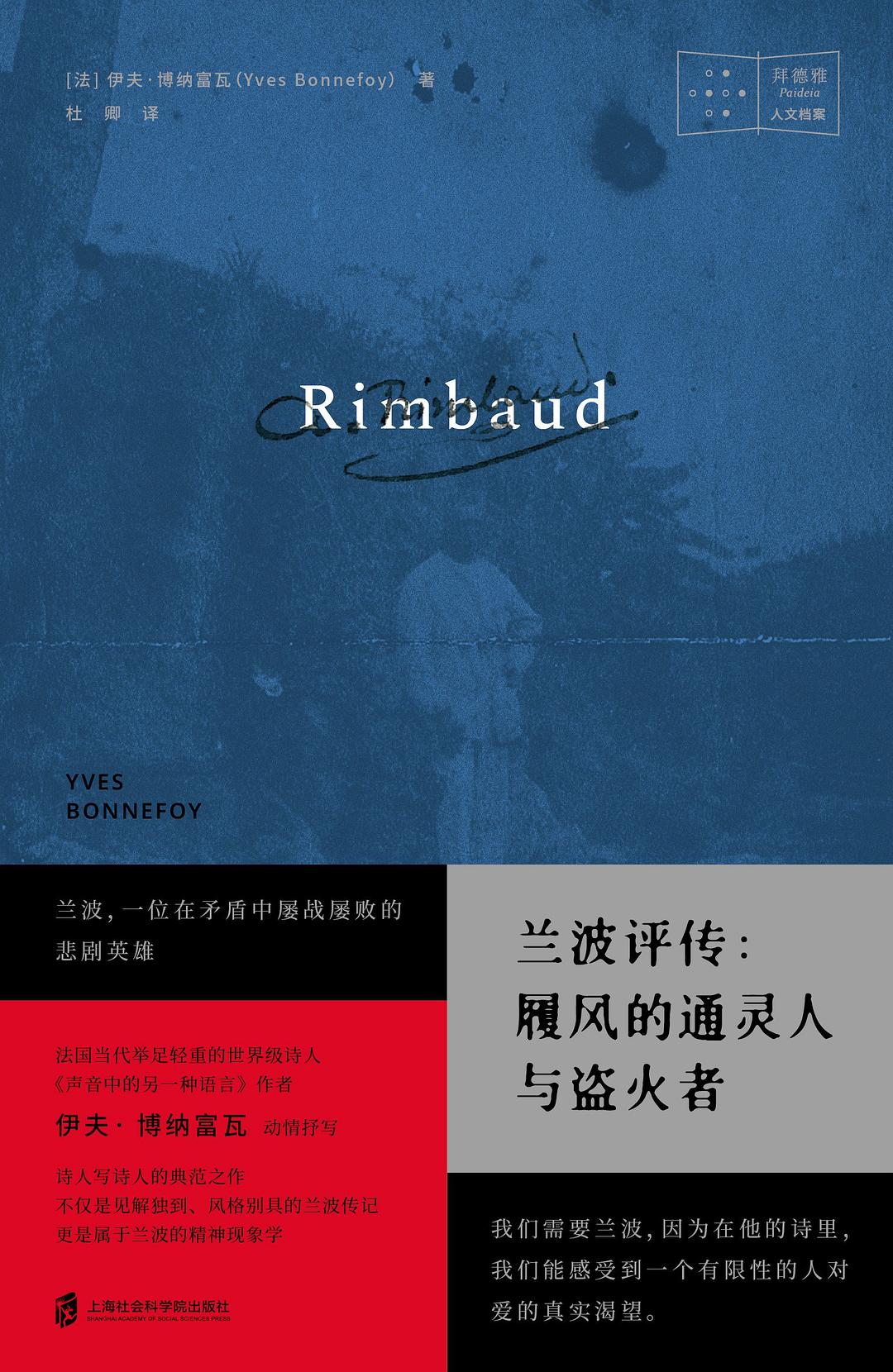WULOLIFE
《兰波评传》作者: [法]伊夫·博纳富瓦 出版社: 上海社会科学院出版社 译者: 杜卿
《兰波评传》作者: [法]伊夫·博纳富瓦 出版社: 上海社会科学院出版社 译者: 杜卿
Couldn't load pickup availability
Description
内容简介 · · · · · ·
- 编辑推荐 -
★法国当代举足轻重的世界级诗人、《声音中的另一种语言》作者伊夫·博纳富瓦动情抒写,诗人写诗人的典范之作,不仅是见解独到、风格别具的兰波传记,更是属于兰波的精神现象学。
★伊夫·博纳富瓦:“我的很多成就都归功于兰波,很少有人像他那样对我产生本质的影响,只"
★兰波诗学的出发点是一种现实主义。他对巴黎公社的关注,对“客观诗学”的宣扬,对超越个体语言以进入普遍性的狂热,都表现出了他对改造社会现实、用“新的爱情”来重塑人与人的关系、重建词语与世界的联系的意愿。
★兰波的动人之处,在于他对“诗人何为”的不断质询的苦恼意识,对存在的可能性核心处的不可能性的持续探寻,在于他数次失败后的如同西西弗他们都是西西弗式诗人。
★兰波,只有真诚的人,才能如西西弗一样屡败屡战,勇于面对位于诗歌核心的不可能,的可能性建筑在这种不可能之上。我们需要兰波,因为在他的诗里,我们能感受到一个有限性的人对爱的真实渴望。
- 内容简介 -
的精神现象学。全书共分八章,深情呈现兰波精神活丰富详尽的参考文献和精彩纷呈的译后手记,并配有大量照片、画作和手稿插图.
正如作者伊夫·博纳富瓦在开篇所提示的那样,“解兰波,让我们阅读兰波吧——将他的声音从混杂的诸多声音中分离出来。不用去远方、不用去别处寻找兰波亲口对我们说的话。鲜有作家像他一样如此热忱地认识自我、定义自我——想要通过认识自我来改变自身,成为另一个人。因此,让我们严肃地对严肃的追求。我建议我们去破它的意愿,重现它的腔调,尤其是这些激荡,这些破碎。”
如果没有这本在对兰波精神的描摹方面如此准确且卓越的书,我们对兰波的阅读将大为失色。
作者简介 · · · · · ·
- 作者简介 -
伊夫·博纳富瓦(Yves Bonnefoy, 1923—2016,他早年的创作颇受超现实主义影响,但很快与之拉开距离,拒绝“图像”和“概念”,力倡“在场”,回到有限性的真实世界之中。兰波则是他诗人 生涯十分关键的思考坐标。博纳富瓦早期的三部诗集《反柏拉图》(19 47)、《杜弗的动与静》(1953)和《昨日,荒漠一片》(195 8),Chinese:遗弃的世界的哀悼。直到完成《刻字的石头》(1965)和《在门槛的圈套中》(1975)这两部诗集,他才进入平静、质朴的下一阶段。《兰波评传:履风的通灵人与盗火者》初版于1961年,正好处在这两个阶段的过渡期。书中兰波的声音和博纳富瓦自己的声音是不可分的:博纳富瓦对兰波生涯的回己未来道路的展望。
- 译者简介 -
杜卿,上海外国语大学法语系学士,巴黎第四大学法语文学系硕士,暂居法国。
